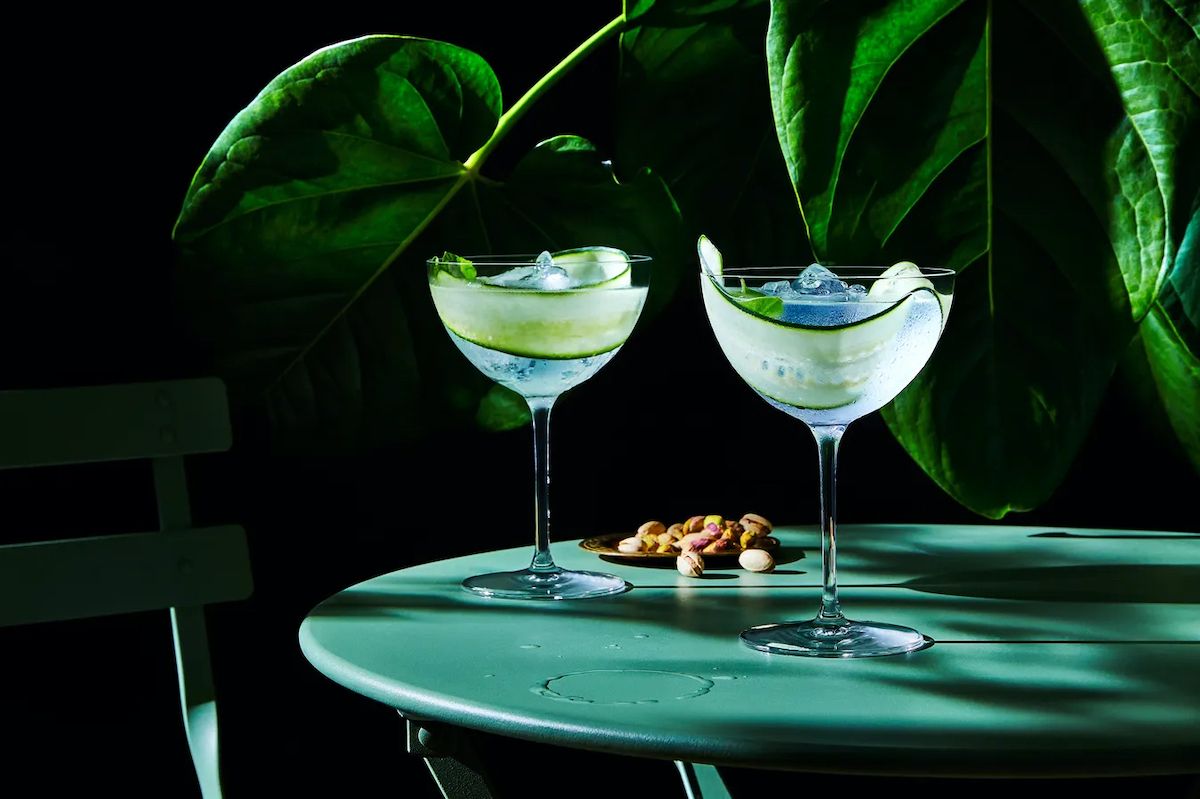With the launch of Drinks52 is going to come myriad mentions of the word "cocktail." Food52 has already given you summer cocktails, whiskey cocktails, nonalcoholic cocktails, but now that there's dedicated space for all things beverage, you can expect many, many more.
* * *
So what is a cocktail, anyway?
You have an image of one in your head right now, no doubt. But is it actually a cocktail, by definition? Merriam Webster defines a cocktail as "a usually iced drink of wine or distilled liquor mixed with flavoring ingredients." If that wasn't vague, the secondary definition leaves us with less specificity: "Something resembling or suggesting such a drink as being a mixture of often diverse elements or ingredients."
Here's the bottom line: It's likely we'll never have a precise definition of a cocktail.
"The first and most important thing to know," says Derek Brown, owner of the Columbia Room bar in Washington, DC, "is that nobody knows the original definition of a cocktail." We know what's been written about it, but when was it first created? What was the creator's intention? These questions remain — even for Brown, who is also the author of "Spirits, Sugar, Water, Bitters: How the Cocktail Conquered the World."
Let's solve the cocktail equation.
Some say a cocktail must contain a spirit, bitters, sugar, and water.
Many who've written on this topic reference an 1806 article in a Hudson, New York paper called "The Balance, and Columbian Repository." It read: "Cock tail, then is a stimulating liquor, composed of spirits of any kind, sugar, water and bitters."
For a while, this was thought to be the first mention of the word "cocktail," and so a true cocktail was expected to contain those four elements. An Old-Fashioned is the classic example of a proper mixed drink that follows this formula.
A martini, in other words? Not a cocktail by this definition. A vodka soda? Not! A! Cocktail!
Turns out, the first cocktail might not have been alcoholic at all.
In 2008, drinks historians Jared Brown and Anistatia Miller discovered a 1798 printing of the word in London's The Morning Post And Gazetteer. It was a satirical piece in which a bar tab listed "cock-tail" for only three-quarters of a pence. "That turns out to be key, since it's the second-cheapest drink on the list, and priced far below anything with spirits in it," cocktail historian (historians on historians!) Dave Wondrich theorized in a 2016 Saveur magazine article. "If it's a cocktail, it's not our cocktail."
Maybe the definition should be more inclusive and expansive, then.
Here's how our drinks resident John deBary put it in his book, "Drink What You Want: The Subjective Guide to Making Objectively Delicious Cocktails":
A more inclusive definition is important because it will help you to see that you're probably already making cocktails for yourself — you just don't realize it — and that it's way easier than you might think.
Here is my definition: A cocktail is a drink made by mixing two or more things together.
That's it. That's the definition.
If you put in a specific amount of cream and sugar in your coffee, you're literally making a cocktail. Congratulations.
Should we land somewhere In the middle?
In his next book, "Mindful Mixology," out 2022, Brown argues that a cocktail should have slightly narrower parameters than deBary's definition, but that a drink should require the addition of alcohol in order to be called a cocktail. "Maybe we should look at it as a set of sensory characteristics rather than a historical definition," he says. Those characteristics, in his mind: intensity of flavor, texture, volume, and piquancy. "It just makes more sense."
Recipes to try at home




Shares